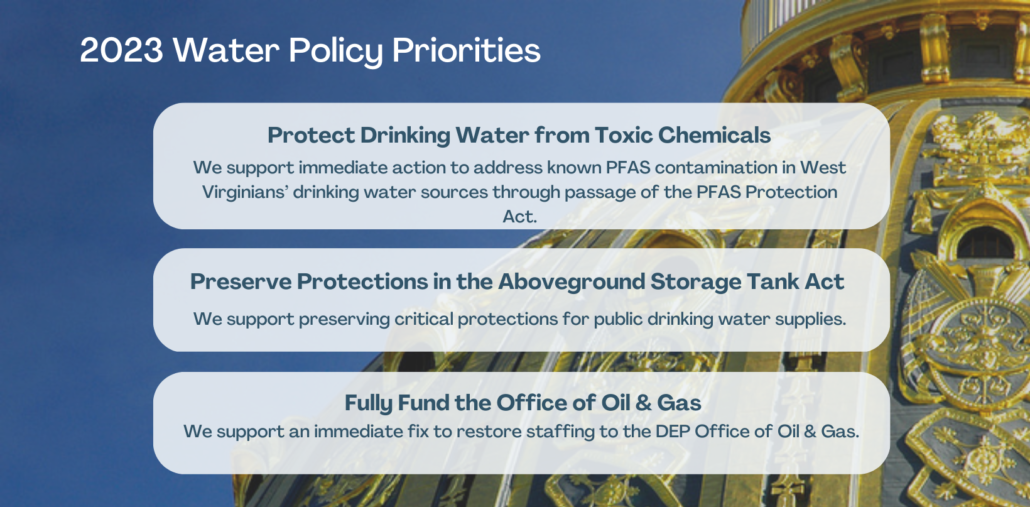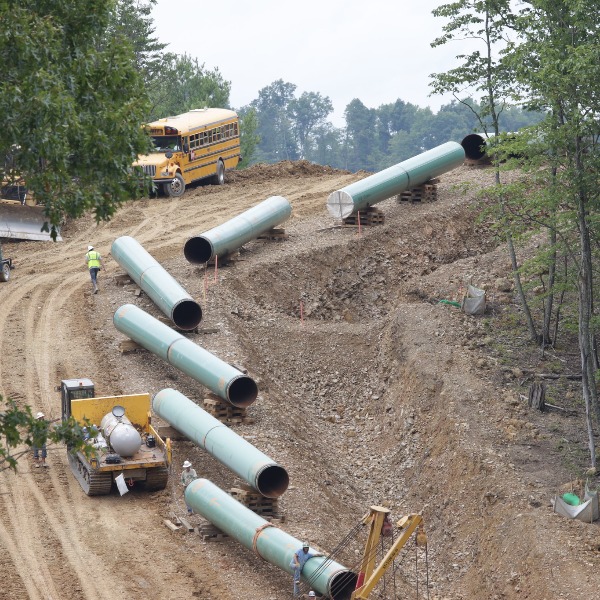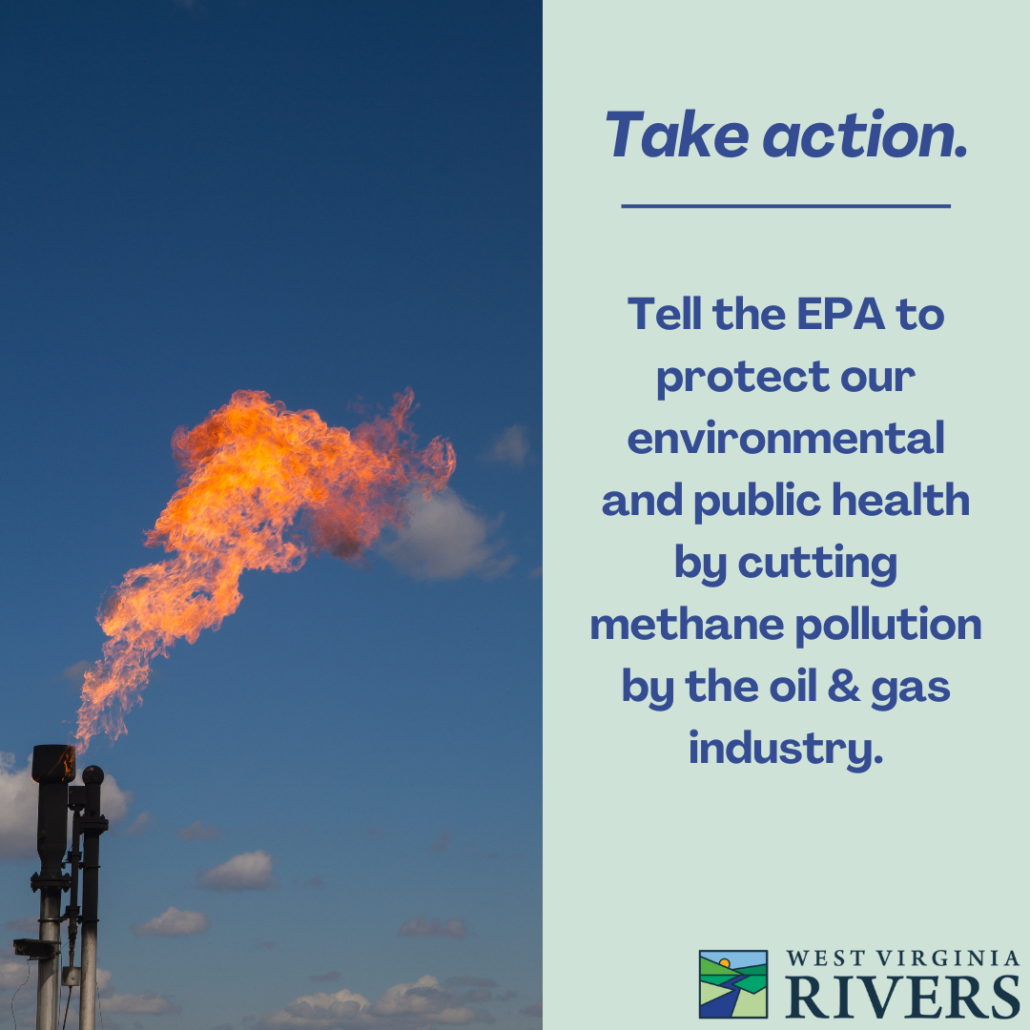WV Rivers News: Special Edition 2023 Water Policy Preview
Spotlight: 2023 Legislation Session Begins
On Wednesday, January 11, the West Virginia Legislature convened in Charleston to begin the 60-day 2023 legislative session. We’ve identified three policies that are essential to the health and safety of West Virginia’s water resources. You can learn more about each of these policies, track water related bills as they progress through the legislature, and find our must urgent calls to action on our water policy webpage.
Get Involved! Each week during the legislative session we send out a Water Policy Newsletter that includes the latest water policy news, analysis and urgent calls to action. We’ve heard from Legislators that the messages they receive through our action alerts make a real difference. If you haven’t already, sign up for WV Rivers Policy News and invite your friends and family members in West Virginia to sign up as well.
Already a Policy News subscriber? Please update your subscription to opt-in to text message action alerts related to the legislative session. We promise to only message you on the most important and time critical actions alerts. Update your subscription to opt-in to text messages.
Contact Your Legislators, Ask Them to Co-Sponsor the PFAS Protection Act
Each week of the legislative session, we share an easy action for clean water as part of Water Policy News, it only takes a few minutes and it is the most urgent call to action.
This Week’s Easy Action: Contact your Legislators and encourage them to co-sponsor the PFAS Protection Act!
Toxic “forever” chemicals have been found in the raw water used to supply drinking water to approximately 700,000 West Virginians.
Known as PFAS, per-and polyfluoroalkyl substances are manmade chemicals that do not break down in nature and can cause adverse health effects, including cancer, at very low levels. Unsafe levels of PFAS have been found in the raw water supply for 130 community water systems. The responsibility for addressing this contamination should not be placed on water utilities or ratepayers.
A bill will be introduced this session to help address PFAS pollution called The PFAS Protection Act. It will require the state to take immediate action to identify PFAS at the source, help hold polluters responsible for cleaning up and preventing further contamination of our drinking water sources, and establish safe limits in our drinking water.
Contact your Legislators and encourage them to co-sponsor the PFAS Protection Act!
Be Seen, Be Heard, Be a Citizen Advocate
What do You want to Learn about Grassroots Advocacy?
What do you need to know to confidently speak up on the issues you care about? We need you, and your voice, to be a part of the decision-making process during the 2023 West Virginia Legislative Session. Please fill out this brief survey so that WV Rivers can offer a 1-hour training to inspire and empower you to make your voice heard!
Lobby Days at the Capitol
Citizen lobby days at the West Virginia Capitol are a great way for you to meet fellow advocates, learn about policies legislators are considering, and connect with organizations that share your values. Say “hi” to WV Rivers team members at the following citizen lobby days!
January 16: Conservation Day with the Association of Conservation Districts; 8:00am – 2:00pm in the Upper Rotunda of the Capitol Building.
February 15: Black Policy Breakfast and Day of Action. Download a copy of the policy agenda.
February 28: Environment Day at the Capitol. Read about the legislative priorities.
New Year, Same Old Problems for the Mountain Valley Pipeline
We’re now in 2023, 9 years after the Mountain Valley Pipeline was first proposed, and the project remains in limbo. Pipeline opponents received an early Christmas present towards the end of December when congressional approval for the MVP failed to make it into any end-of-the-year spending bills.
But the issue is far from over, the public now has two opportunities to weigh in on the unnecessary and destructive project. After the 4th Circuit Court of Appeals invalidated MVP’s approval to cross the Jefferson National Forest and the Appalachian Trail in Monroe County, WV and Giles County, VA, the U.S. Forest Service (USFS) released a new Supplemental Environmental Impact Statement (SEIS) outlining a process to authorize MVP to cross public lands. The public has until February 6 to comment on the draft.
Additionally, the U.S. Army Corps of Engineers (USACE) released for public comment MVP’s proposed monitoring and restoration plans for streams and wetlands impacted by construction. Comments are due February 10. WV Rivers staff and partners are in the process of scrutinizing these documents. Be on the lookout for upcoming opportunities to voice your opposition of the MVP.
It’s Time to Address Methane Pollution
Methane is a potent greenhouse gas which accelerates global warming in turn exacerbating climate impacts, like severe flooding. The oil and gas industry contributes the most to methane pollution in the United States. Toxic pollutants released alongside methane during operations worsen respiratory diseases and increase the risk of cancer and cardiovascular diseases. This pollution reacts with other chemicals and sunlight to form ozone smog.
Learn more about methane pollution in West Virginia in a new blog by climate coordinator, Morgan King.
In November, the EPA proposed an update to a draft rule from 2021 that addresses methane pollution from leaky and abandoned gas wells. This proposal would decrease methane emissions and other toxic pollution. Add your voice! Tell EPA it’s time to take action on methane pollution.
State of the Bay Report Released
The 2022 State of the Bay Report was released last week! The Chesapeake Bay Watershed is over 64,000 square miles, with many of its headwaters in West Virginia. According to report, the overall health of the Chesapeake Bay remains unchanged from 2020, a D+.
Check out our webpage on the important role West Virginia plays in the health of the Bay watershed
A big gain for oysters was tempered by a worrying drop for blue crabs, and pollution and habitat indicators showed modest change. Read more about the 2022 State of the Bay Report, and download it from the Chesapeake Bay Foundation.








